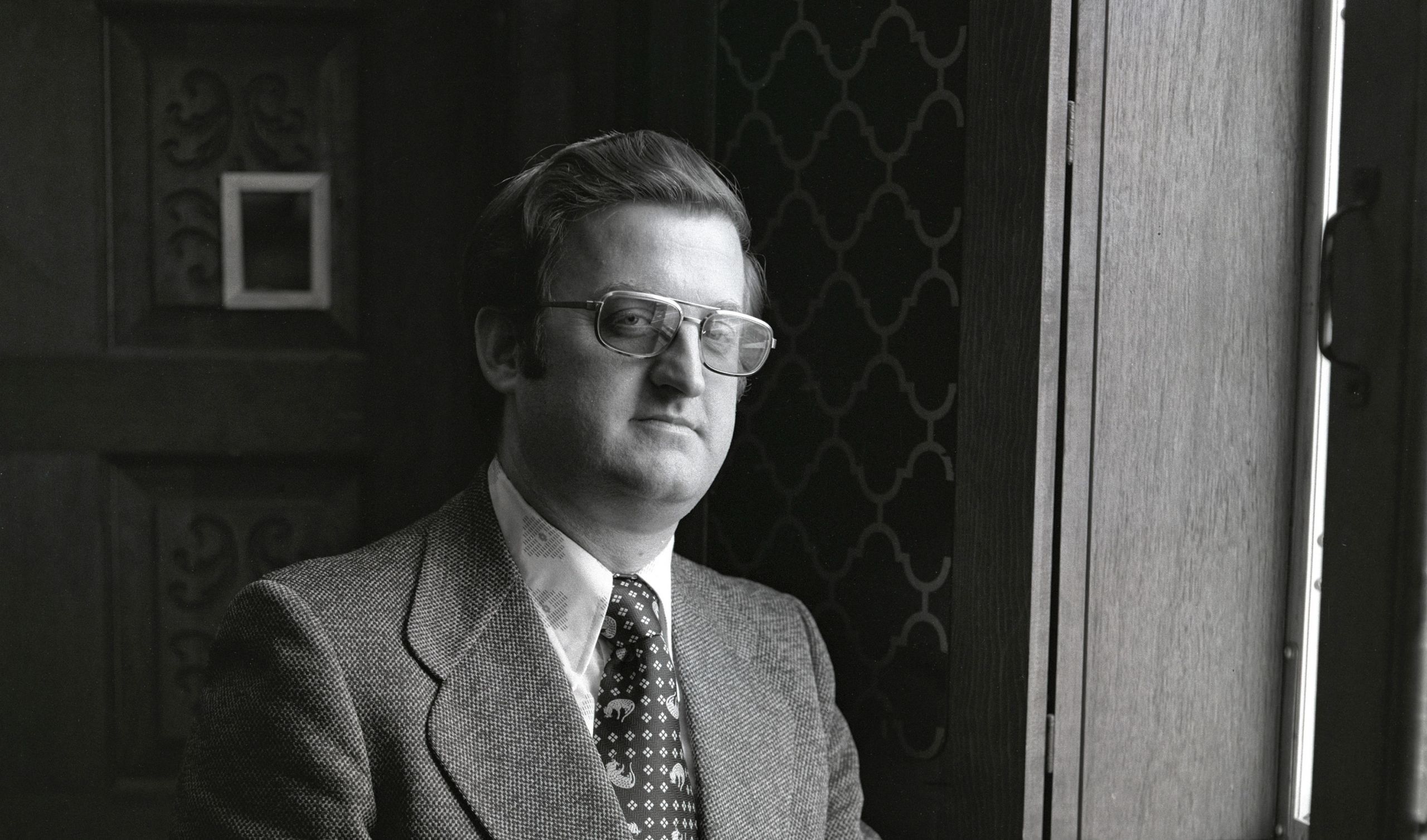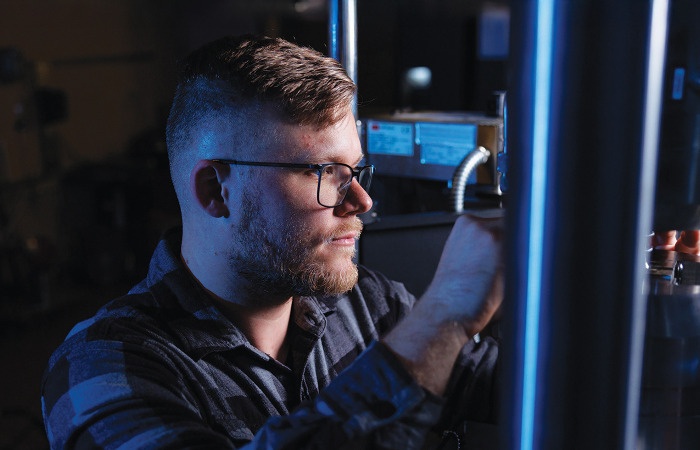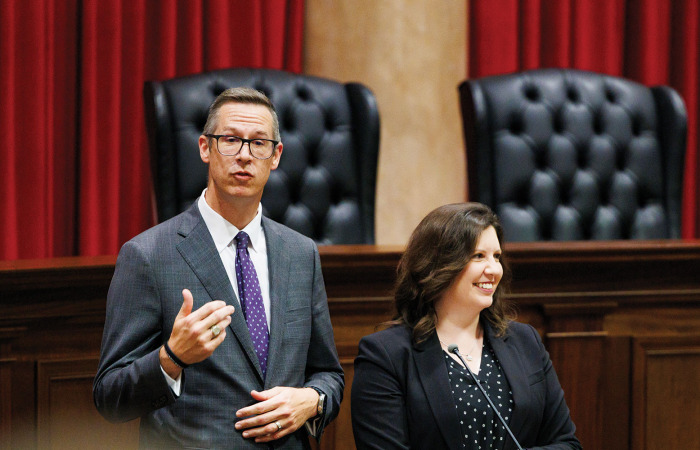Founding a college, and eventually a university, from scratch was no easy task. For Liberty University’s founding president, Dr. A. Pierre Guillermin, and founder Dr. Jerry Falwell, Sr., Liberty is nothing less than the manifestation of a vision they shared 46 years ago and a tribute to the hard work they, along with a plethora of other visionaries, workers, and donors, did to bring it to fruition.
“The history of Liberty University has been and continues to be a chronology of miracles and accomplishments,” Guillermin said. “From its very inception, Liberty has been a very dynamic organization. And while other colleges and universities have been built on years of calculated steps, Liberty has always advanced in leaps and bounds. What is happening today is really a great testament to Dr. Falwell’s vision and to the team that eventually put all this together.”
The beginning
In 1966, Guillermin visited Lynchburg to speak at a local church. During his stay, Guillermin agreed to meet with Falwell, though he knew little about the man. It was during this meeting the two discovered their shared vision.
“We shared a common philosophy of Christian education,” Guillermin said, recalling the meeting. “We discussed the need to develop a Christian education system under the auspices of a local church – like Thomas Road Baptist Church (TRBC) – which would encompass an academy, a college, and eventually, a university.”
Not having known Falwell for very long, Guillermin was surprised at the immediacy with which Falwell responded to this idea.
“At the end of our conversation, he asked me to leave where I was and join him.”
Unsure of how serious Falwell really was, Guillermin did not give him a prompt answer. Shortly after leaving Lynchburg, Guillermin learned just how serious Falwell was about putting their shared vision into action.
“After leaving Lynchburg and receiving several phone calls, as only he knew how to do, I said, ‘If you’re really interested, and you’re willing to build that Christian educational system, and eventually a university, I’ll come.’”
Guillermin left South Carolina, where he was president of a small Methodist College and joined Falwell in 1967. That fall, Lynchburg Christian Academy – later renamed Liberty Christian Academy (LCA) – opened its doors with 102 students enrolled.
By 1971, the full range of the vision was coming to reality with the opening of Lynchburg Baptist College (LBC) with 154 students. LBC eventually would become Liberty University.
Challenges and accomplishments
“Turning that vision into a reality, the accomplishments run parallel with the challenges we faced,” Guillermin said.
When the college was founded in 1971, there was no campus and only four full-time faculty members. Students attended classes at TRBC and bunked in small houses across the street from the church, four to five per room.
“We started with no students, no faculty, no campus … in reality, no funding,” Guillermin explained.
Early on, some of the challenges were gaining both Virginia State Accreditation and accreditation through the Southern Association of Colleges and Schools (SACS), providing housing for the students and constructing a campus, along with all of the financial issues closely tied to these endeavors.
But no matter how great the obstacle appeared, God always seemed to pull things together at the right time.
Through the collaborated team effort of Guillermin, Falwell, and other founding visionaries, Liberty was able to flourish, growing from a small college of under 200 students to the largest Christian university in the world, boasting nearly 100,000 residential and online students.
Guillermin played a large role in securing accreditation, acquiring a campus, securing membership in the NCAA, and developing the physical land required to accommodate Liberty’s rapid growth under his tenure.
“Liberty has made a tremendous impact all over the world and it will continue to be a very strong Christian institution, so long as it is consistent and committed to its Christian faith,” he said. “That really is what makes it distinctive. To my knowledge there is not another university in the world that has had such an impact because of its Christian orientation.”
The Falwell/Guillermin dynamic
While Guillermin and Falwell shared their vision, their skillsets were different in several regards, a dynamic that proved useful in founding the educational system.
Though they were co-laborers, they were also close friends. The Guillermins and Falwells lived just two houses away from each other for many years, and their families interacted with one another frequently.
“Our relationship was both professional and personal. Dr. Falwell was an entrepreneur, and he was a visionary, and he was always up in front of everyone else,” Guillermin said. “His role, therefore, was one of casting a vision and marketing a concept, and of course, raising the funds. My role in the relationship was overseeing the administrative and academic affairs of the university on a day-to-day basis.”
Falwell had a magnetic attraction for radio and television, as well as an uncanny ability to raise funds, often at the very last moment. While he managed the spotlight, and played an enormous role in securing funds, Guillermin took on a more behind-the-scenes role.
When he came to Lynchburg, Guillermin was already an experienced educator and administrator. He assumed the role of LCA’s first administrator and Liberty’s first president. In his 30-plus years working with Falwell, Guillermin also served as Executive Vice President of Lynchburg Christian Schools and as an education professor at Liberty. Though Guillermin kept a more quiet profile, he enjoyed interacting with students and, throughout his career, was actively involved in many of their lives.
During his tenure as president, Guillermin, an active advocate of Christian education, traveled throughout Europe, the Middle East, and the Far East, addressing the issues and trends in higher education. He lectured at Oxford University and was an advisor with the Shiloah Center for Middle Eastern and African Studies at Tel Aviv University.
Guillermin was appointed by former President George H. W. Bush as a Presidential Advisor on Education and was appointed by the Secretary of Defense and the Secretary of the Navy to serve on the Board of Visitors of the Marine Corps University and Marine Corps War College.
In 1996, Guillermin, who still resides in Lynchburg, retired from Liberty. Falwell officially named Guillermin Co-Founder and President Emeritus in 1997. Since then he has taught seminars on marriage and family, spoken at churches, traveled and served on several boards, including at the Marine Corps University. He travels occasionally and works locally with international students at various colleges.




